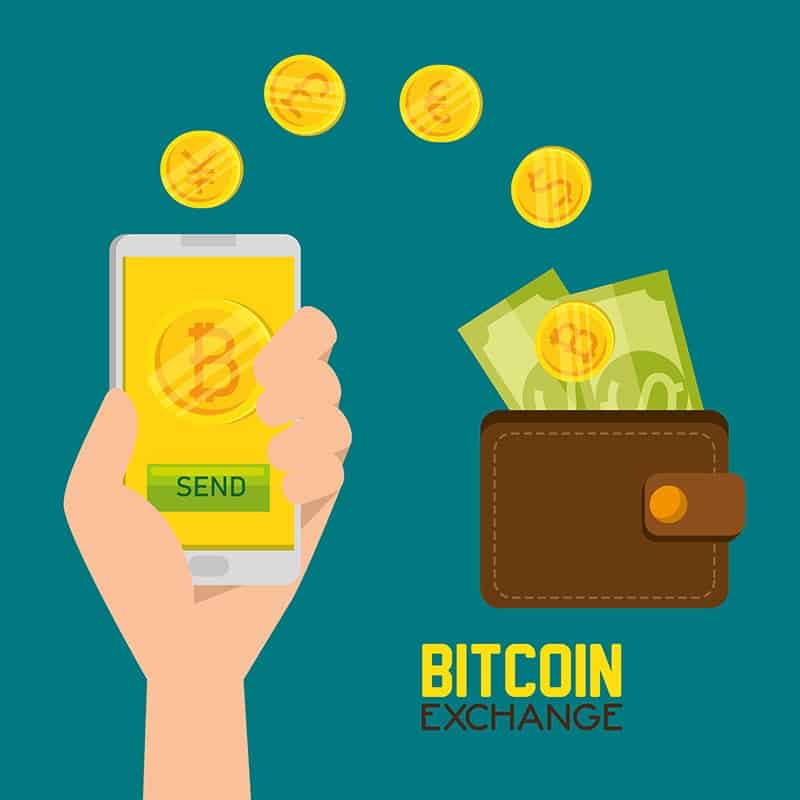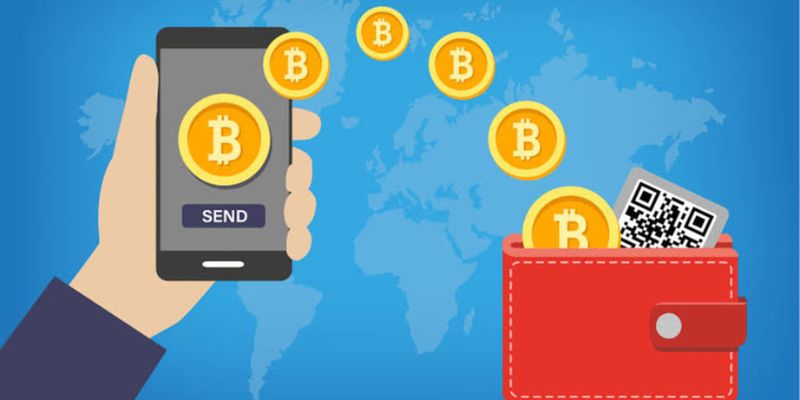Navigating the twists and turns of cryptocurrency can be thrilling, but without the proper wallet, it’s like riding a rollercoaster without a seatbelt. Don’t worry! I’ve got the lowdown on how to choose a secure crypto wallet for beginners to keep your digital coins safe and sound. With countless options out there, it’s easy to get lost in fancy jargon and endless features. But let’s cut through the noise and focus on what really matters: securing your digital treasure trove with a wallet that’s as safe as a vault and simple enough for any newbie to master. Get ready to dive into the world of crypto with confidence!
Understanding the Basics of Cryptocurrency Wallets
What is a Cryptocurrency Wallet?
A cryptocurrency wallet is like a safe for your digital money. To access this safe, you need a special key, which is called a private key. Think of it as a secret code that unlocks your safe. Your wallet keeps your code safe and lets you see your money.
Different Types of Cryptocurrency Wallets – Hot and Cold Storage
When picking a place to keep your coins, you have two main choices. Hot wallets or cold storage. Hot wallets are connected to the internet. This makes them easy to use but more open to hackers. Cold storage wallets are not connected to the internet. They are like a safe that is tough for thieves to crack.
Hot wallets let you get to your money fast. They can be apps on your phone or programs on your computer. Cold storage uses devices like USB drives or even paper to store your secret code offline. This is safer but can be less handy.
When you look for a wallet, think about safety first. Check if the wallet has encryption. This scrambles your secret code into a puzzle that’s hard to solve.

Using two-factor authentication, or 2FA, adds more security. It’s like having a second lock on your door. Even if someone finds out your password, they need another code, sent to your phone, to get in.
For hot wallets, think about what kind of device you will use. Will you check your crypto on your phone or your computer? Phones can be handy, but be careful of free Wi-Fi as hackers might be watching.
For cold storage, paper wallets are simple but must be kept in a safe place. Hardware wallets look like USB drives. They are good because your codes stay offline.
Also, always back up your wallet. If you lose your device, you can still get your money. Write down your seed phrase too. It’s a list of words that can restore your wallet if needed.
Remember, public keys are for sharing, private keys are to keep secret. Don’t let anyone know your private key.
Look for trusted wallet brands and read reviews. Some wallets let you keep different kinds of coins, which is good if you have many.
When you start, keep it simple. Find a user-friendly wallet. As you learn more, you might try a wallet that needs more steps to open, called a multisig wallet, for extra safety.
Stay away from scams. Scams might trick you into giving away your codes. Always double-check everything.
In the end, your choice will depend on how you plan to use your coins. Do you need fast access, or do you want the safest option? Think about your needs and be safe. Being new doesn’t mean being unsafe. Learn well and pick the right wallet for you.
Evaluating Crypto Wallet Security Features
The Role of Encryption and Private Keys
When selecting cryptocurrency storage for newcomers, understanding encryption is key. A secure digital wallet uses tough encryption. This means it scrambles your data so only you can access your coins. Think of encryption like a secret code only you can read. Your crypto wallet’s private key is part of this code. It’s like a secret number that unlocks your wallet. Keep it safe like a house key!
Beginner’s guide to crypto wallets will say: never share your private key. If someone gets it, they can steal your coins. It’s that simple. Secure digital wallet features must protect your private key. Before picking a wallet, make sure it does this well.
Cold storage essentials include strong encryption, too. This means storing info offline, away from hackers. A hardware wallet, like a small USB device, does this best. You plug it into your computer only when you need it. This keeps your key safe most of the time, away from the internet.

But, watch out for mobile wallet security. Phones can get lost or stolen. Plus, mobile apps might have weaknesses. This makes your private key vulnerable. For better safety, a desktop wallet has advantages. It’s harder for thieves to access.
Lastly, paper wallet creation is about writing down your key on paper. It’s simple but risky. Lose the paper? Lose your money. A seed phrase helps. It’s a list of random words that back up your wallet. Store it like treasure.
Now, how do you avoid a bad choice? Always look for reviews on cryptocurrency wallets. They help you find trusted brands. Plus, check if the wallet supports multiple cryptocurrencies if you need it. And make sure the wallet’s setup feels right. A confusing wallet is hard to use safely.
The Importance of Two-Factor Authentication
Two-factor authentication for wallets adds an extra step to log in. It’s like having a second lock on your door. Even if someone has your key, they can’t get in without the second code, usually sent to your phone or email.
Think of it this way. You have a secret knock to enter your club’s treehouse. That’s your password. Two-factor is like asking a riddle after the knock. Only a real club member knows the answer.
Hot wallet risks and benefits are clear. Hot wallets connect to the internet. They’re like your pocketbook, easy to reach but easier for thieves to target. Using two-factor can stop them, even if they sneak by your first defense.
What’s a sign of compromise? Warning cues could be strange account activity or unknown transactions. If something feels off, check it twice. Just like you’d double-check your doors before a vacation.
So, remember, two-factor isn’t just good. It’s a must-have. Make it part of your best safety practices for crypto storage. Without it, your wallet’s like a house with no lock. You wouldn’t want that, right?
Choosing a wallet is like picking a safe place to keep your life’s savings. Take it seriously. Good security measures keep your crypto safe. Always use encryption and two-factor. And don’t forget, when it comes to wallets, less complex is often more secure.
Selecting a Crypto Wallet – Hardware vs Software Considerations
Pros and Cons of Hardware Wallets for Beginners
Choosing where to keep your digital coins is like picking a safe for your gold. Let’s chat about hardware wallets first. Imagine a small device that you can hold. That’s a hardware wallet. It stores your crypto offline, away from hackers. This is called cold storage. It’s safe, like keeping your jewels in a bank vault.
But hardware wallets can be costly for some folks. They may seem tricky to use when you start. You have to plug them into a computer or phone to use your coins. Plus, you gotta keep them safe. If you lose it, recovering your coins can be a real hassle. Yet, for holding coins long-term, these wallets are a top choice. They are the safest out there.
Software Wallets: Mobile and Desktop Security Insights
Now, let’s dig into software wallets. These are apps on your phone or computer. They’re super handy. You can send, receive, and check your coins on the go. This is hot storage, like carrying money in your pocket. It’s ready to use!
But with hot storage, there’s a risk. Hackers could attack your internet-connected device. To stay safe, you need good passwords and two-factor authentication. That’s a secret code changing every time you log in. Encryption is also key – it scrambles your data so thieves can’t read it.
For a first timer, mobile wallets are user-friendly. They show you how much crypto you have, sort of like a banking app. Some mobile wallets even let you scan QR codes to pay fast and easy. Desktop wallets give you more control. You can see more info and change more settings.
So think, what’s vital for you? If safety is your number one, a hardware wallet is ace. For daily use and convenience, try a software wallet. Make sure you check out reviews and pick a trusted brand. After all, you want the best to keep your hard-earned coins secure. And don’t forget, no matter what wallet you pick, learn all about it. Know how to use it to keep your crypto safe.
Best Practices for Maintaining Your Crypto Wallet’s Integrity
Regular Backup and Seed Phrase Safeguarding
Protect your crypto like a treasure. Always back up your wallet. It’s like making spare keys for your car. You wouldn’t want to get stuck with no way back in. Crypto works in a similar way. If your device crashes or gets lost, backups save the day. They help you get back your digital money.
For a backup, you need to know about seed phrases. These are like secret codes to unlock your money. Write down your seed phrase. Keep it in a safe place where only you can find it. It’s not just a good plan, it’s a must. If you lose it, you might lose your crypto too. Like losing the map to a hidden treasure.
Think of your seed phrase as the master password for your wallet. It’s a list of words, usually 12 to 24 long. When you set up any wallet, it will show you this phrase. Write it down right away. Be very careful. If someone else gets it, they get your crypto. So hide it well, maybe in a locked box or a safe.
Backing up your wallet also means keeping your software updated. This goes for hardware wallets too. Updates help keep your money safe. They’re like better locks on your treasure chest. So always keep your wallet up to date.
Recognizing and Avoiding Phishing Scams and Other Threats
Bad people try to steal your crypto. They’ll try tricks to trick you. They might send emails or messages that look real but aren’t. This is called phishing. It’s like fishing, but they’re fishing for your secret info. Don’t bite! If something seems odd, it might be a trap. Be smart, stay alert, and keep your crypto safe.
Spotting these tricks can be hard, but you can learn how. Check for strange links in emails. If they look weird, don’t click. If a message scares you into acting fast, take it slow instead. Scammers often try to push you to make bad choices. Remember, real support from wallet companies won’t ask for your seed phrase. Not ever.
Think before you click. Your wallet’s safety starts with you. If you get a message that something’s wrong with your wallet, be careful. Go straight to the official website or contact support yourself. Don’t use the links in the message. That way, you won’t get tricked into giving away your secrets.
Also, try making sure each of your wallets have a special password. Using the same password everywhere is risky. If one place gets broken into, all your stuff might get taken. Be like a smart pirate. Have different secret maps to different treasures.
Finally, learn to spot danger. Sometimes your wallet might act weird. If it’s slow, or sending funds on its own, it could be a warning sign. If you see this, get help right away. Use support from where you got your wallet, but remember, never share your seed phrase.
In short, stay safe with backups and smart actions. Treat your crypto like the precious treasure it is. Make sure to keep outsmarting the scammers too. That’s the secret to a happy life on the crypto seas.
In this post, we covered the essentials of crypto wallets, from what they are to how they secure your digital money. You’ve seen the difference between hot storage, like mobile wallets, and cold storage, such as hardware wallets. We’ve gone through key security features, including the need for strong encryption and the added safety of two-factor authentication.
When picking a wallet, remember: hardware options offer strong security, while software wallets on phones or computers provide ease but require careful handling. Always back up your wallet and keep your seed phrase hidden. Stay sharp to avoid scams.
Your digital currency deserves top protection. Choose your wallet wisely, and keep your crypto safe. Remember these tips, and you’re on your way to smart, secure crypto handling. Follow Crypto Market Pulse to update more knowledge about Crypto.
Q&A :
FAQ Section for “How to choose a secure crypto wallet for beginners”
What features should beginners look for when selecting a secure crypto wallet?
When beginners are on the lookout for a secure crypto wallet, they should prioritize wallets with a strong reputation for security. Look for wallets with multi-factor authentication (MFA), which adds an extra layer of security. It is also important to find a wallet that provides a backup system for your private keys, which are crucial for accessing your cryptocurrency. Other features such as an intuitive user interface, compatibility with different cryptocurrencies, and customer support are also crucial aspects to consider.
How important is wallet encryption for crypto security for novices?
Wallet encryption is paramount for maintaining crypto security, especially for those who are new to the space. Encryption ensures that private keys are stored in a secure manner, often by converting them into unreadable code that can only be deciphered with the correct password. Novices should confirm that their chosen wallet utilizes strong encryption practices to protect their assets from unauthorized access.
Can beginners use hardware wallets, and how secure are they?
Yes, beginners can use hardware wallets. In fact, hardware wallets are often recommended for their robust security. They store the user’s private keys offline on a physical device, making them immune to online hacking attempts. For beginners, it is crucial to follow the manufacturer’s instructions carefully and to ensure that they purchase the hardware wallet from reputable sources to avoid counterfeit devices.
How does the choice of a hot wallet or cold wallet impact security for first-time crypto users?
For first-time crypto users, understanding the difference between hot wallets (connected to the internet) and cold wallets (offline storage) is essential. Hot wallets are convenient for frequent trading and ease of access but are more vulnerable to online attacks. Cold wallets, on the other hand, provide a higher level of security as they are not connected to the internet and are best for long-term storage of cryptocurrency. Beginners should weigh their need for accessibility against their desire for security when choosing between the two.
What are the best practices for securing a crypto wallet for beginners?
Best practices for securing a crypto wallet for beginners include keeping software updated to ensure the latest security patches are applied. Do not share private keys or passwords with anyone and avoid using public Wi-Fi when accessing your wallet. Additionally, making use of all available security features provided by the wallet, such as two-factor authentication, and conducting regular backups can significantly decrease the risk of losing access to your crypto assets. It’s also wise for beginners to diversify their holdings across different types of wallets to mitigate risk.


